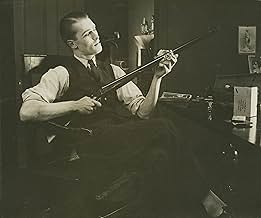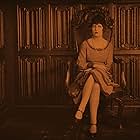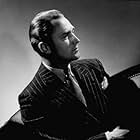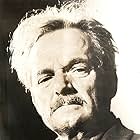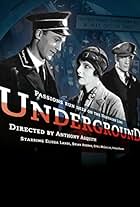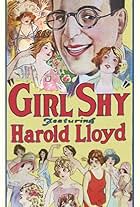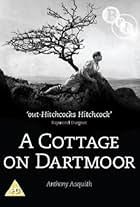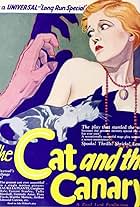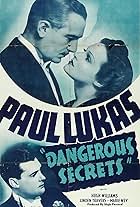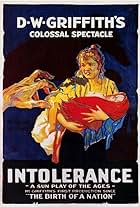The husband and wife acting team of Mae Feather and Julian Gordon is torn apart when he discovers she is having an affair with the screen comedian Andy Wilks. Mae hatches a plot to kill her ... Read allThe husband and wife acting team of Mae Feather and Julian Gordon is torn apart when he discovers she is having an affair with the screen comedian Andy Wilks. Mae hatches a plot to kill her husband by putting a real bullet in the prop gun which will be fired at him during the mak... Read allThe husband and wife acting team of Mae Feather and Julian Gordon is torn apart when he discovers she is having an affair with the screen comedian Andy Wilks. Mae hatches a plot to kill her husband by putting a real bullet in the prop gun which will be fired at him during the making of their new film, 'Prairie Love'.
- Winnie - Bathing Beauty
- (uncredited)
- Woman in Beach Tent
- (uncredited)
- Directors
- Writers
- All cast & crew
- Production, box office & more at IMDbPro
Storyline
Did you know
- TriviaAnnette Benson (Mae Feather) would make another half-dozen silent films before flopping in two 1931 talkies and disappearing from the screen.
- ConnectionsFeatured in Cinema Europe: The Other Hollywood (1995)
It's hard to put a finger on when the audience stopped laughing. The change is very subtle; and if, as I was, you are not expecting it, the effect is gradually almost overwhelming.
The basic plot is the stuff of comedy, or of broad melodrama -- cuckolded husband, vain and silly wife, mistaken identity, unexpected return, and a gag involving a lipstick and, of all things, a shotgun cartridge. If it were a film -- which is to say, in one of the ridiculously bad films-within-the-film -- it would be played for laughs, inadvertent or otherwise. It is, I think, a very great tribute to both the actors playing actors, and to the director of "Shooting Stars" itself, that it comes across instead as contrasting real life with celluloid performance.
What starts off as slapstick becomes, by the end, desperately unfunny. Humour and double meanings have turned to the bitterest irony. Lines that once would have raised a laugh -- "I never knew Mae had it in her," says the director admiringly as his lead actress collapses on set in guilt and horror that are all too real for the scene -- now come closer to wrenching out a twisted sob. There are two different allusions even in the black wordplay of the title.
The film walks a very fine line between comedy and tragedy. Perhaps this, above all, is what I admire most -- Julian's cheerful ignorance as Mae faints, the empty, swinging chandelier, the alluring professional smile that drains from Mae's face as she turns to wave to her celluloid lover and witnesses her real lover's approach... By the end, comedy is now longer used for laughs. It is used to point up the sting of the tragedy by robbing it of melodrama.
I think the last actual laugh among the audience came when Mae runs to forestall the owner of the approaching footsteps, only to encounter an elderly an innocent clergyman. After that, there was nothing but gasps and silence until the last frame of the film. Judging by the outbreak of coughing and seat-backs that followed -- not to mention applause -- I wasn't the only one to have been sitting frozen, holding my breath. You could have heard a pin drop.
I felt particular credit should have gone to Brian Aherne, giving a wonderful performance as matinee idol Julian in what could have proved an utterly thankless part. Julian is essentially playing straight-man to his two co-stars, as open-hearted and naive as the stereotyped cowboy hero he is being asked to act, but without audience sympathy for him his wife's antics would be little more than a harmless bedroom farce.
Aherne makes us care about Julian -- makes us genuinely like him, and wince to see him hurt. The young man finds excuses for Mae's behaviour on-set, and for her sake laughs off being trailed like luggage in his wife's wake to Hollywood; and when he wishes that Mae's tenderness when they star together could correspond more closely to their off-screen married life, it is not farcical but poignant. When we smile at his childish vanity as he cheers himself on while watching his own film, just like the two schoolboys in the neighbouring seats, it is with amused affection.
Yet Aherne can also use his height and classic good looks to startling threatening effect, as we discover in the scenes where Julian learns the truth. By the end of the film, the character has grown; and Aherne gives him well-deserved authority to hold the role.(
- Igenlode Wordsmith
- Feb 14, 2004
- Permalink
Details
- Release date
- Country of origin
- Language
- Also known as
- Shooting Stars Restored Version
- Production company
- See more company credits at IMDbPro
- Runtime1 hour 10 minutes
- Sound mix
- Aspect ratio
- 1.33 : 1
Contribute to this page



